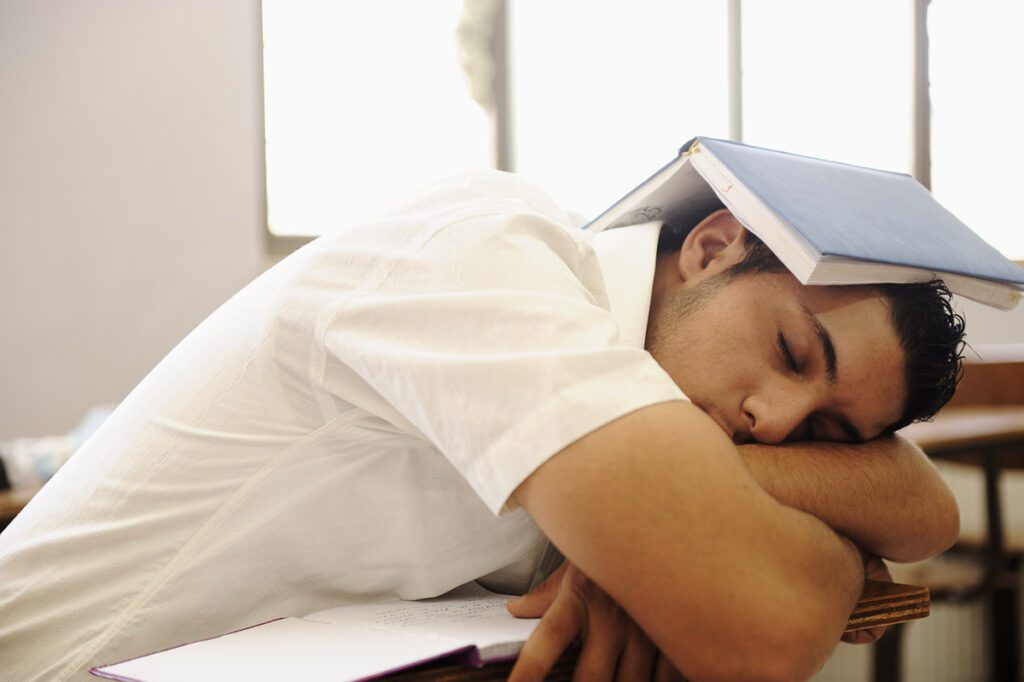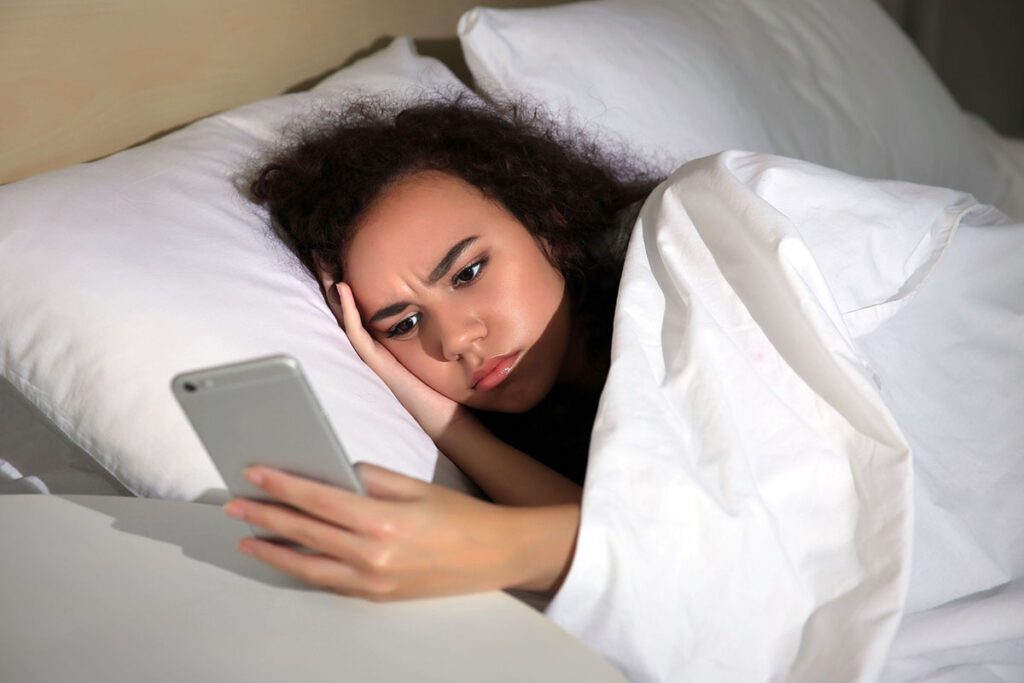Getting teenagers to meet deadlines during the day, especially if they are in high school, is a challenge for many parents. But what about their nighttime schedules, especially concerning their sleeping habits?
Making sure teens are getting enough sleep is especially complicated over the summer months without a school schedule dictating their “bed time.”
The American Academy of Sleep Medicine recommends that teens get eight to 10 hours of sleep daily for optimal mental and physical functioning. Here are some tips to ensure your teenager gets the quality sleep they need.

Use the Bed for Sleeping Only
It’s not unusual for teens to come home from a friend’s house or part-time job only to grab something from the kitchen and head off to their bedrooms. It is great to relax a bit after a long day, and stimulus control is one of the key principles of managing insomnia.
Even adults are encouraged to find other places than their bed to kick back, as the mind can begin to subconsciously start seeing the bed as a place to chat, text, watch TV, listen to music, etc., as opposed to a place for sleeping.
Find teens another place to handle recreational activities to help them use the bed only for its intended purpose: sleep!
Have Limits on Non-Academic Screen Time
Teens need a solid sleep schedule to help their minds develop, to boost memory retention and to promote emotional wellbeing. While internet-connected devices and television can serve as educational tools and be sources of relaxation, too much time behind the screen can have negative consequences. Putting limits on a teen’s screen time can keep them moving and prevent sedentary behavior, which can be a source of insomnia.
There are also links between one’s mood during and after screen time due to the content that is being consumed. Some may be aggravated, some may get overexcited, and others are simply tempted to take a peek at social media in the middle of the night. And all of those alerts going off certainly don’t help promote deep sleep.

nIn turn, this impacts their circadian rhythm, which is a huge contributor to keeping teens up at night. Solutions include:
- Turn devices off.
- Remove devices from the bedroom.
- Activate silent mode on phones and laptops.
- Use ‘do not disturb’ and ‘night shift’ modes.
- Lower the phone’s color temperature to reduce blue light emissions.
The Sallie B. Howard School of Arts & Science is a public school that fosters students with a strong drive for success, but we also encourage teens to get ample sleep. We work personally with each student and their families. Contact us to learn more about our esteemed educational programs.



